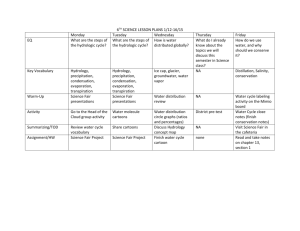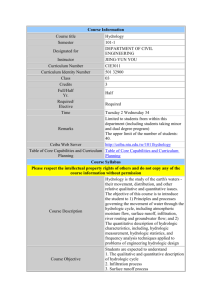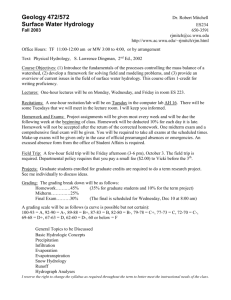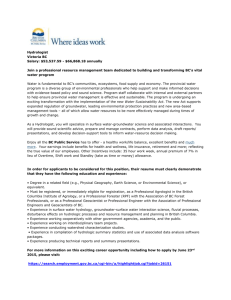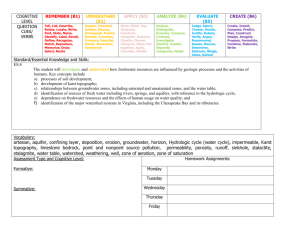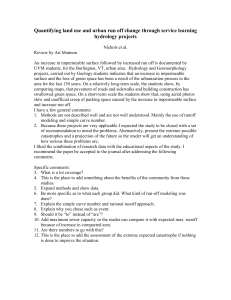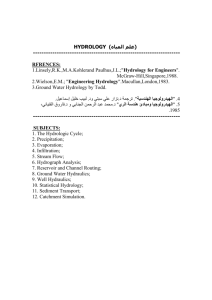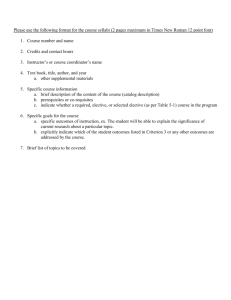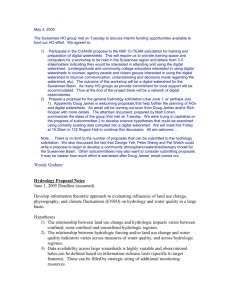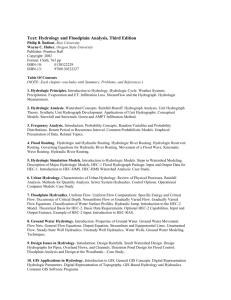Workshop Announcement - University of Vermont
advertisement
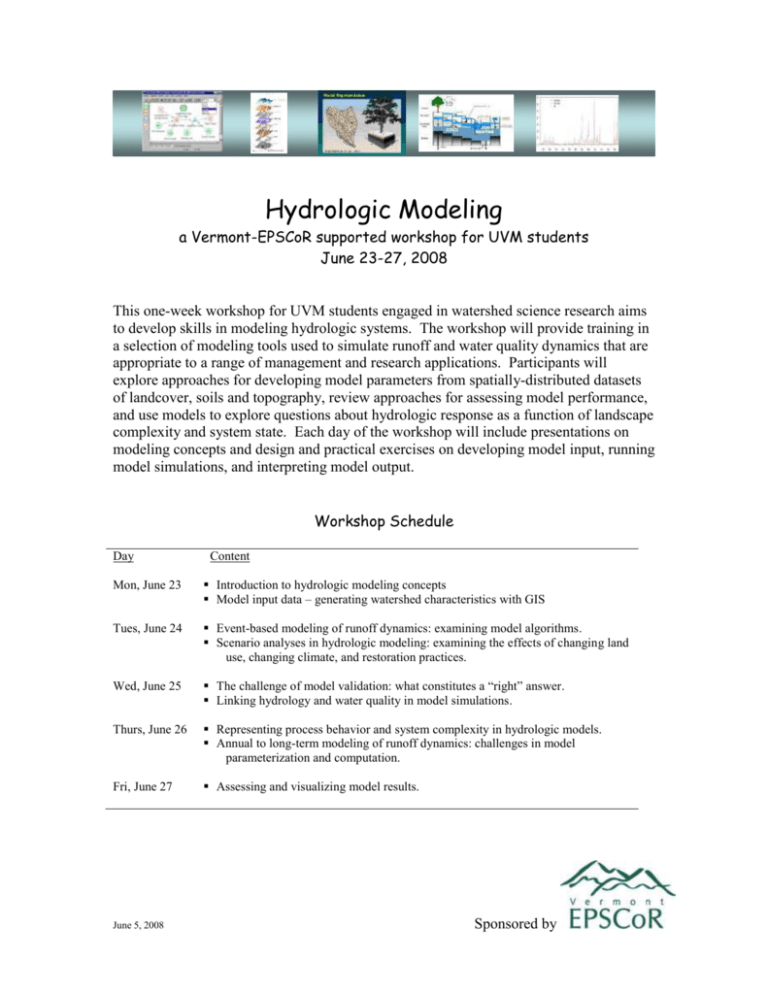
Hydrologic Modeling a Vermont-EPSCoR supported workshop for UVM students June 23-27, 2008 This one-week workshop for UVM students engaged in watershed science research aims to develop skills in modeling hydrologic systems. The workshop will provide training in a selection of modeling tools used to simulate runoff and water quality dynamics that are appropriate to a range of management and research applications. Participants will explore approaches for developing model parameters from spatially-distributed datasets of landcover, soils and topography, review approaches for assessing model performance, and use models to explore questions about hydrologic response as a function of landscape complexity and system state. Each day of the workshop will include presentations on modeling concepts and design and practical exercises on developing model input, running model simulations, and interpreting model output. Workshop Schedule Day Content Mon, June 23 Introduction to hydrologic modeling concepts Model input data – generating watershed characteristics with GIS Tues, June 24 Event-based modeling of runoff dynamics: examining model algorithms. Scenario analyses in hydrologic modeling: examining the effects of changing land use, changing climate, and restoration practices. Wed, June 25 The challenge of model validation: what constitutes a “right” answer. Linking hydrology and water quality in model simulations. Thurs, June 26 Representing process behavior and system complexity in hydrologic models. Annual to long-term modeling of runoff dynamics: challenges in model parameterization and computation. Fri, June 27 Assessing and visualizing model results. June 5, 2008 Sponsored by Modeling Tools Win TR-55 http://www.wsi.nrcs.usda.gov/products/W2Q/H&H/Tools_Models/WinTR55.html SWAT – The Soil Water Assessment Tool http://www.brc.tamus.edu/swat/ DHSVM – The Distributed Soil Hydrology Vegetation Model http://www.hydro.washington.edu/Lettenmaier/Models/DHSVM/index.shtml Workshop Instructors Maeve McBride is an environmental engineer and geomorphologist with expertise in surface water hydrology, stream restoration, watershed planning, water quality modeling, and geomorphic analysis of streams. Maeve has done geomorphic work in urban, forested, and agricultural streams to investigate the impacts of development, timber harvest, and restoration activities. She holds a Ph.D. in Civil and Environmental Engineering from the University of Vermont. Lula Ghebremichael is an agricultural engineer with interest in hydrology and water-quality modeling at farm and watershed scales. Her work includes incorporating hydrology and water quality models into GIS frameworks and the use of modeling to examine the effectiveness of best management practices. She holds a Ph.D. in Agricultural and Biological Engineering from Pennsylvania State University. Scott Waichler is a hydrologist experience in watershed analysis, groundwater modeling and field work, open-channel flow modeling, vadose zone modeling and field work, land surface energy balance modeling, and biogeochemical modeling. Scott’s work also includes statistical analysis, quality control, and transformation of large datasets and the development of software tools for model autocalibration and visualization. He holds a Ph.D. in Bioresource Engineering from Oregon State University. Beverley Wemple is a hydrologist with experience in field and modeling studies. Her research focuses on effects of landcover dynamics on soil biogeochemical processes, erosion and runoff production. Beverley works primarily in upland, forested watersheds. She holds a Ph.D. degree in Forest Ecology and Water Resources Engineering from Oregon State University. Information for Participants Students interested in participating in the workshop should contact Beverley Wemple, Associate Professor, Geography (bwemple@uvm.edu; 656-2074). Priority for participation will be given to graduate students working on water resources research. Some space may be available to advanced undergraduates working on research projects with UVM faculty. Faculty advisors will be asked to provide letters of endorsement for applicants. Participating students will be awarded a $500 stipend. Location and Hours 9:00am – 5:00 pm daily (morning and afternoon breaks and lunch) Monday & Tuesday, June 23-24, Votey 246 Wednesday – Friday, June 25-27, Lafayette 203
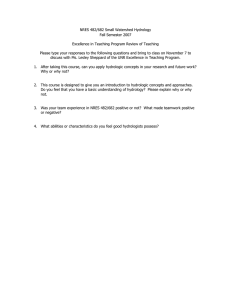
![Job description [DOC 33.50 KB]](http://s3.studylib.net/store/data/007278717_1-f5bcb99f9911acc3aaa12b5630c16859-300x300.png)
